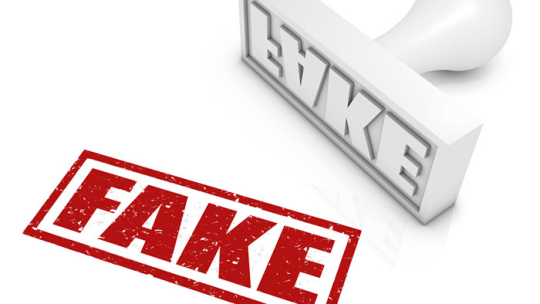
A perusal of the just-released Monmouth University poll (see chart) illustrates one of the reasons why trust and reputation are declining among brands, governments, organizations and their leaders, as noted in the reports of Edelman (PRN, Jan. 30) and The Reputation Institute (PRN, March 20).
As both groups emphasized in their respective studies, the fake news epidemic has resulted in a lot of trouble for anybody seeking the public’s trust or trying to build or repair reputation.
Back to the new poll, though, as Patrick Murray, director of the independent Monmouth University Polling Institute, puts it, “These findings are troubling, no matter how you define fake news. Confidence in an independent fourth estate is a cornerstone of a healthy democracy. Ours appears to be headed for the intensive care unit.”
What’s Fake News?
One of the significant findings here is that while there’s confusion within the American public about fake news’ definition--just 25% say the term fake news applies only to stories where facts are wrong--the public believes traditional media outlets are involved with fake news, too.
As the table shows, a majority feel fake news involves editorial decisions as well as groups planting inaccurate stories to bolster their agenda. And those stories are planted not only at websites but also with traditional news outlets such as newspapers and television.
We Believe in Fake News’ Spread
More than 3-in-4 Americans believe traditional TV and newspaper media outlets report fake news, including 31% who believe it happens regularly and 46% who say it’s an occasional occurrence.
The 77% who believe fake news reporting happens at least occasionally has increased significantly from the 63% of the public who felt that way last year.
Social’s Role
Interestingly, social media was not seen as the main culprit in the spread of fake news. Instead social was seen as part of the fake news ecosystem, along with traditional news outlets.
About 60% say social media sites are partly responsible for fake news’ spread, but other media sources are more responsible. This compares to 29% who say social sites are mostly responsible for the spread. Just 6% say they are not at all responsible. There is bipartisan agreement on this opinion, Monmouth says.
Still, 69% of those polled believe social sites are failing to do enough to halt the spread of fake news on their platforms.
It’s important to note the Cambridge Analytica-Facebook affair had no influence on the poll’s findings. The poll was taken prior to the Cambridge story hitting the headlines.

